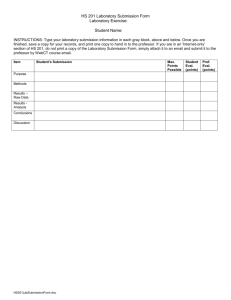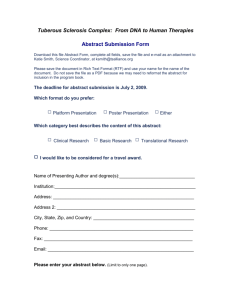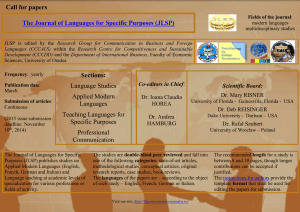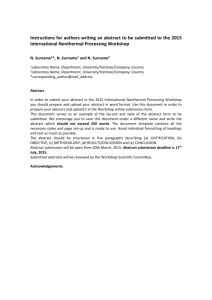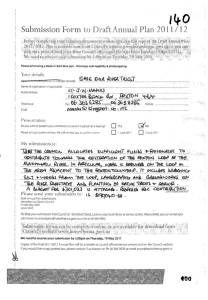The Anatomy of Power, by John Kenneth Galbraith
advertisement
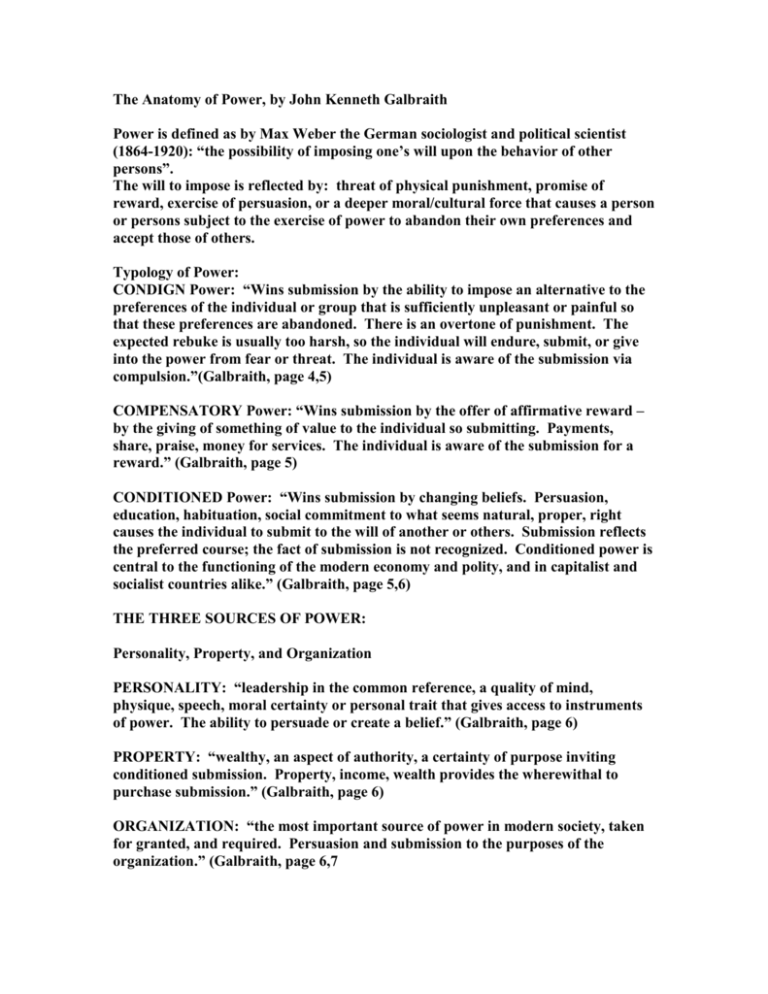
The Anatomy of Power, by John Kenneth Galbraith Power is defined as by Max Weber the German sociologist and political scientist (1864-1920): “the possibility of imposing one’s will upon the behavior of other persons”. The will to impose is reflected by: threat of physical punishment, promise of reward, exercise of persuasion, or a deeper moral/cultural force that causes a person or persons subject to the exercise of power to abandon their own preferences and accept those of others. Typology of Power: CONDIGN Power: “Wins submission by the ability to impose an alternative to the preferences of the individual or group that is sufficiently unpleasant or painful so that these preferences are abandoned. There is an overtone of punishment. The expected rebuke is usually too harsh, so the individual will endure, submit, or give into the power from fear or threat. The individual is aware of the submission via compulsion.”(Galbraith, page 4,5) COMPENSATORY Power: “Wins submission by the offer of affirmative reward – by the giving of something of value to the individual so submitting. Payments, share, praise, money for services. The individual is aware of the submission for a reward.” (Galbraith, page 5) CONDITIONED Power: “Wins submission by changing beliefs. Persuasion, education, habituation, social commitment to what seems natural, proper, right causes the individual to submit to the will of another or others. Submission reflects the preferred course; the fact of submission is not recognized. Conditioned power is central to the functioning of the modern economy and polity, and in capitalist and socialist countries alike.” (Galbraith, page 5,6) THE THREE SOURCES OF POWER: Personality, Property, and Organization PERSONALITY: “leadership in the common reference, a quality of mind, physique, speech, moral certainty or personal trait that gives access to instruments of power. The ability to persuade or create a belief.” (Galbraith, page 6) PROPERTY: “wealthy, an aspect of authority, a certainty of purpose inviting conditioned submission. Property, income, wealth provides the wherewithal to purchase submission.” (Galbraith, page 6) ORGANIZATION: “the most important source of power in modern society, taken for granted, and required. Persuasion and submission to the purposes of the organization.” (Galbraith, page 6,7

